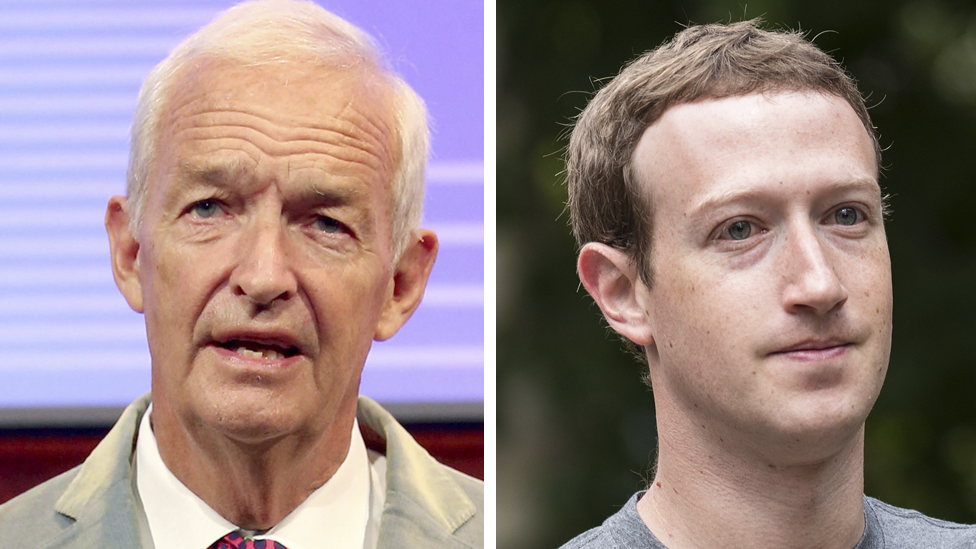Jon Snow: Facebook a threat to democracy
- Published

Facebook should do more to tackle the spread of "cancerous" fake news, and help fund original journalism, newsreader Jon Snow has said.
The journalist, who has presented Channel 4 News since 1989, gave the MacTaggart Lecture at the annual Edinburgh TV festival.
He said Facebook's inaction was a "threat to democracy".
Facebook's founder Mark Zuckerberg says the company is "experimenting" with ways to support the news industry.
'Moral duty'
In a 50-minute speech, Mr Snow said Facebook had helped Channel 4 News find a wider audience for its reports, but left publishers at the mercy of the social network.
"Facebook's principles are seldom explained in detail and can change overnight at Mr Zuckerberg's whim," said Mr Snow.
He also criticised the company's reputation for allowing false stories to spread unchallenged.
"Facebook enabled the story, 'Pope endorses Trump for President'," he said.
"That engaged more than a million people during the US elections. That same algorithm that prioritised many amazing reports of ours, also prioritised fakery on a massive scale.
"Facebook has a moral duty to prioritise veracity over virality. It is fundamental to our democracy."
Jon Snow gave the MacTaggart lecture in Edinburgh
Mr Snow also said Facebook had paid news publishers a "nominal rate" for their stories, which was not enough to support truthful, investigative journalism.
"Facebook feasts on our products and pays all but nothing for them. This cannot last," he told the audience.
Channel 4 has of the full lecture.
Feedback
On Wednesday evening, Mr Zuckerberg said Facebook was exploring new ways to support journalists.
In a , he said: "As more people get more of their news from places like Facebook, we have a responsibility to create an informed community and help build common understanding."
He said the social network was testing a way to make it easier for people to subscribe to publishers they liked, and Facebook would not take a cut of the subscription money.
He also described changes to help people check the authenticity of articles.
"Eventually, our goal is to put a publisher's logo next to every news article on Facebook so everyone can understand more about what they're reading," he wrote.
"Giving people a voice is not enough without having organisations dedicated to uncovering new information and analysing it. We're going to keep experimenting with different ways to support the news industry and make sure reporters and publishers everywhere can keep doing their important work."
The post was not a direct response to Mr Snow's speech.
"I'm a fan of Facebook," Mr Snow said in his lecture.
"It's great, it's terrific - but I'm not a fan of playing fast and loose with the products that we in this room generate at great expense.
"It cannot be beyond the bounds of human understanding to come up with a way of ensuring that these mega-entities have to pay to play."
- Published6 April 2017